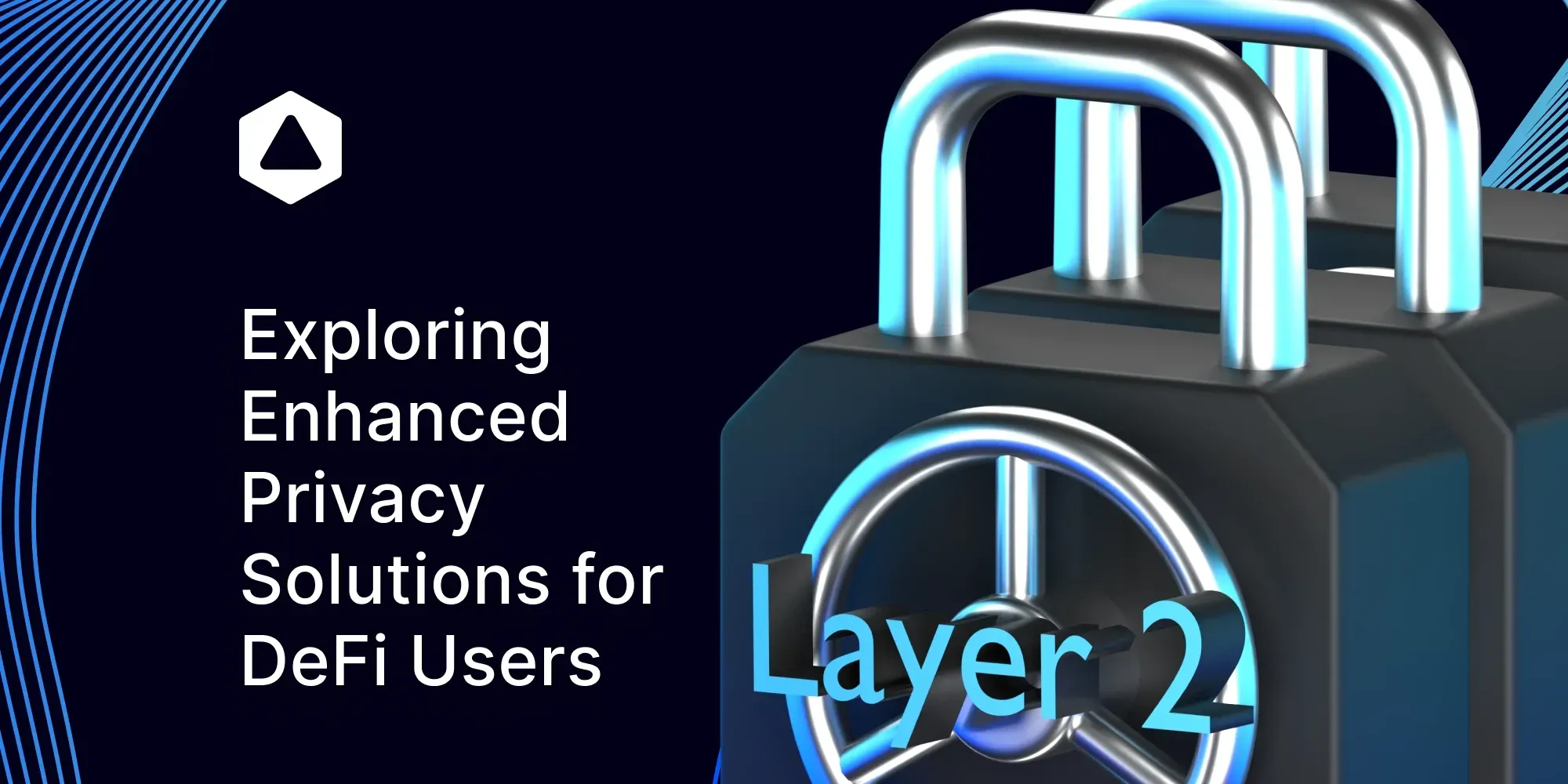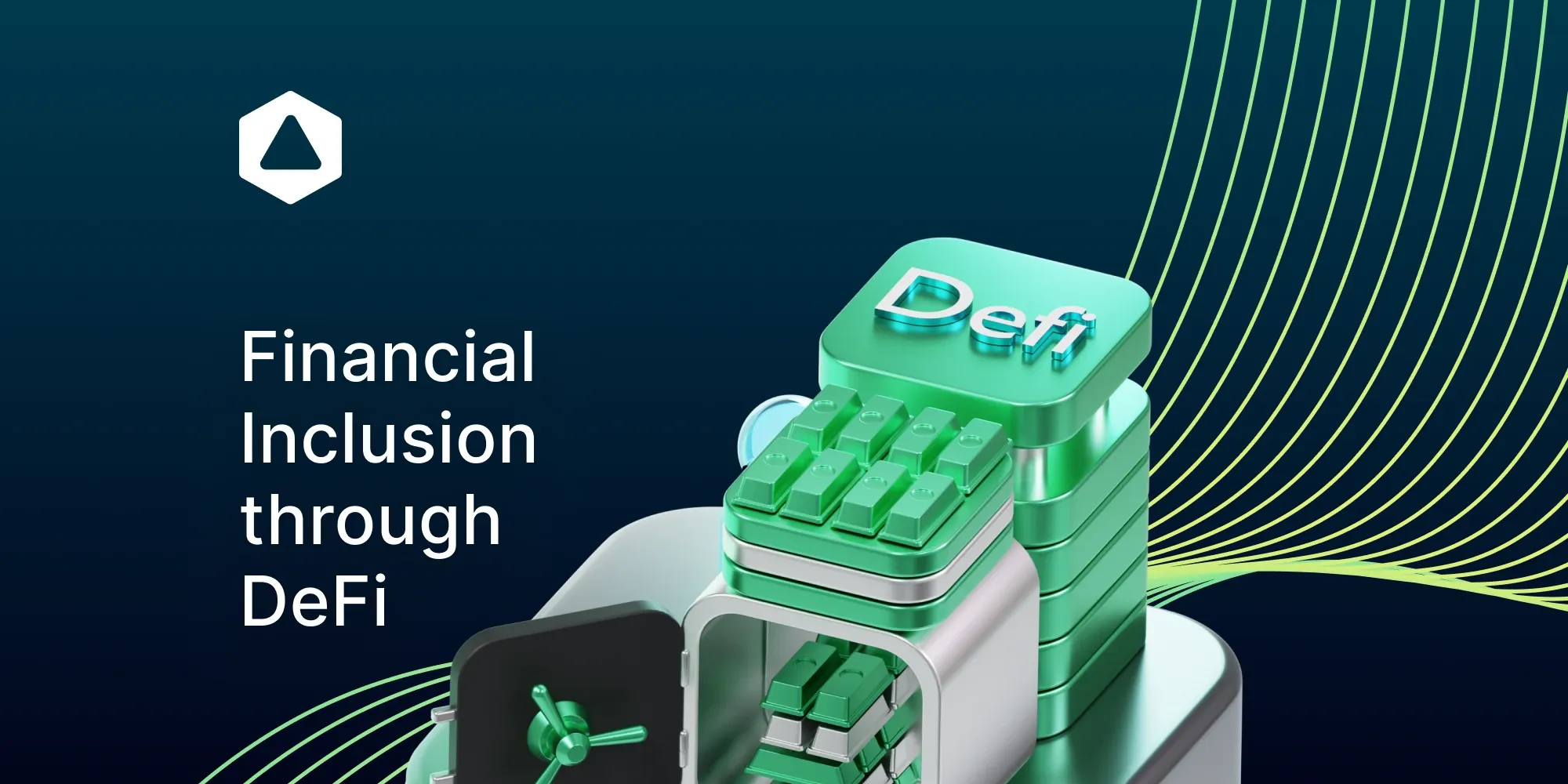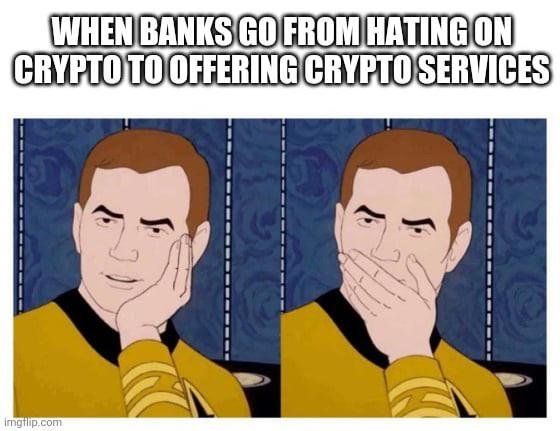Bitfinity Weekly: Romans Under Siege

Welcome to Issue #68 of Bitfinity Weekly for our #BITFINIANS community. If this newsletter was forwarded to you, sign up here.
What's in Today's Email?
- Global Crypto News
- This Week in our Blog
- NFT Market Bytes
- Tweet of the Week
- Meme Time
- A Matter of Opinion
Global Crypto News
💣 Romans Under Siege: Developers Roman Semenov and Roman Storm have been charged with three conspiracy counts due to their work on Tornado Cash, a privacy mixer that obfuscates cryptocurrency transactions. According to a statement from US Attorney Damian Williams, Tornado Cash "laundered more than $1 billion in criminal proceeds", including sums funneled by North Korean hackers, the Lazarus Group. Furthermore, the indictment claims that the Tornado Cash founders "took no steps to implement effective AML (Anti-Money Laundering) or KYC (Know-Your-Customer) programs" in order to profit from the increased volume of transactions handled by Tornado Cash.
👛 Robin Who?: The crypto community was abuzz with speculation over an unknown wallet that suddenly became the third largest holder of Bitcoin in under four months, with 118k $BTC (currently valued at around $3.1b) in its holding. Controversial crypto analytics platform Arkham Intelligence tracked wallet activity to conclude that the owner of the wallet is tradfi trading platform Robinhood, though the company has not verified ownership.
🐸 Meme Me To the Moon: $PEPE, which led the memecoin rally just a few months ago, is undergoing major scrutiny as former $PEPE promoter Jeremy Cahen (a crypto influencer better known as @Pauly0x) alleges that the memecoin's team has been engaging in insider trading. Pauly is doxxing the team's irl identities as well as wallet addresses. In addition, Pauly claims to be working with "multiple branches of law enforcement" to bring down the team.
👁️ Eyewitness Report: Nadir Hajarabi, who claims to have worked with Worldcoin since prior to their much scrutinized token ($WLD) launch, uploaded a YouTube video on Wednesday accusing the project of "horrendous execution that deserves whatever will come next". Worldcoin, which was co-founded by OpenAI's Sam Altman, is a biometric cryptocurrency project that scans people's irises to confirm humanity. The project has received considerable criticism for their possible mishandling of sensitive biometric data, as well as their practice of paying individuals in low-income countries in exchange for registration.
😵💫 No Backsies: The U.S. DEA (Drug Enforcement Agency) accidentally sent a scammer over $50,000 of seized crypto after falling for a common wallet address scam. The DEA, which had seized $500,000 of $USDT from Binance accounts suspected of being involved with narcotics trade, was airdropped tokens to mimic a fake test payment to the U.S. Marshals Service. Roughly $55,000 $USDT was sent to the scam address before the Marshals office noticed the discrepancy.
This Week in our Blog
Security and privacy are major points of concern when it comes to blockchain transactions. Off-chain Layer 2 solutions could be key to delivering an optimal experience for all users. In this article, we go over some of the technical aspects as well as pros and cons of enhanced privacy solution options:

Decentralized Finance is often billed as a solution for the 'unbanked'--those who are underserved by traditional financial institutions. Why is this such an important issue, and how do the unbanked benefit from DeFi? We take a deep dive and answer all of the questions you have, and more:

NFT Market Bytes
🏝️ Landlocked: Nathaniel Chastain, a former product manager at OpenSea, was sentenced to three months in prison as well as a $50,000 fine this week, in a landmark case for insider trading in fraud in the NFT space. Chastain was convicted of fraud and money laundering in May, for buying NFTs with insider knowledge of which collections would be featured on the marketplace's front page ahead of time.
👞 New Stomping Grounds: Doodles, a prominent NFT collection on Ethereum, has announced a partnership with Crocs, a casual footwear brand known for their colorful rubber sandals. The collaboration will see a product launch on August 29th, which includes physical and digital merch.
💸 R is for Royalties: Rarible, a multichain NFT marketplace, has seen a 585% surge in volume since taking a public stance advocating for NFT creator royalties. This follows OpenSea's much criticized decision to remove royalty support. Rarible plans to "cease aggregate orders from royalty-neglecting competitors", and fully dissolving support for those marketplaces by the end of September.
🏈 The NFT Playbook: Patrick Mahomes, the quarterback for Kansis City Chiefs football team, announced a collaboration with Azuki this week. The two-time Super Bowl champ will be releasing a physical trading card that features custom artwork of Mahomes exclusively for Azuki holders, designed by the Azuki art team. Mahomes is no stranger to the NFT scene; the collaboration is being launched via The Museum of Mahomes, a digital collectibles platform he founded in 2021.
Tweet of the Week
📢 🆕 Hackathon Alert
— DFINITY (@dfinity) August 22, 2023
The Fully On-Chain with #ICP Hackathon on @devpost 🚀
🏆 $23,000 in prizes and a $40,000 Developer Grant up for grabs
🌐 Track 1 - Awesome ICP
🟧 Track 2 - BUIDL #Bitcoin
🎮 Track 3 - GameFi
🔗 Learn more and participate at https://t.co/nN3aMYhNgZ pic.twitter.com/CqDPosSndT
Meme Time

A Matter of Opinion
This week Tornado Cash, a privacy mixer designed to obscure the origins of cryptocurrency transactions, has found itself at the center of allegations involving money laundering and sanctions violations. The Department of Justice (DOJ) has pointed to over $1 billion in transactions passing through this service, raising concerns about its potential misuse and ties to hacker activity like that of the Lazarus Group. However, while such illegal/unethical uses cases do occur, it is important to remember the essential role financial privacy plays in protecting the rights and security of ordinary citizens.
Financial privacy isn't just about shielding illicit activities; it's about preserving individual autonomy and security. Consider the vast amount of personal information tied to our financial transactions. This information, if exposed, can be exploited by advertisers, fraudsters, or even malicious actors. Financial privacy ensures that individuals can maintain control over their sensitive data, preventing unwarranted intrusion.
Moreover, financial privacy safeguards citizens against discrimination. Imagine a world where anyone and everyone could have unrestricted access to an individual's transaction history. In such a scenario, everything from job opportunities to gym memberships could be unfairly influenced by one's financial choices, leading to a loss of opportunities for those who might have made past mistakes or simply chosen to live their lives differently.
Additionally, the Tornado Cash case sets a dangerous precedent for punishing a developer for simply writing code. Software creators are akin to architects; they design tools that can be used for both good and ill. Holding them accountable for the misuse of their creations could stifle and discourage innovation.
Such a legal precedent could send shockwaves through the tech industry, casting a shadow over the freedom to develop. In fact, consider the internet itself, a cornerstone of modern society, which can be used for both empowerment and harm. The law must not punish creators for the potential misdeeds of those who abuse their innovations.
In a world where data is increasingly more valuable, advocating for financial privacy is advocating for personal freedom. It's about ensuring that individuals can engage in financial activities without the constant fear of unwarranted surveillance or potential discrimination. The Tornado Cash case is a reminder that while addressing illegal activities is essential, we must also be cautious not to erode the fundamental rights that underpin a just and democratic society.

Connect with Bitfinity Network
Bitfinity Wallet | Bitfinity Network | Twitter | Telegram | Discord | Github

*Disclaimer: While every effort is made on this website to provide accurate information, any opinions expressed or information disseminated do not necessarily reflect the views of Bitfinity itself.



Comments ()